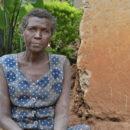Tunis, Egypt””is Sudan Next?
A Tunisian who works for the moderate Islamist channel Al Wihar met me yesterday and said: “Sudan is next, but not in the same manner.” Several Sudanese opposition writers and politicians have also predicted a Tunisian or Egyptian style uprising in Sudan. Let us consider the causes of unrest and see if they fit the situation in Sudan.
British and U.S. responses to events in Egypt are wide of the mark. Two examples illustrate this. The highly respectable newspaper The Guardian enumerated in an editorial (27 January) the grievances of the protesters “ … sparked by self-immolation, unemployment and high food prices.” What the editorial leaves out is equally important: it is kowtowing to the West and Israel. It was most insensitive to force the Egyptians to engage in the siege of Gaza at a time in which US and British officials denounced the Israeli attack on the Flotilla carrying aid.
The U.S. Huffington Post provides another example. Marcus Baram wrote (29 January) that People in Egypt were disappointed in President Obama, especially in the wake of his June 2009 Cairo speech. He cited very relevant U.S. controversial policies like cutting funding for democracy and governance as well as funding for civil society and NGOs in Egypt. Like The Guardian’s Editorial, he left out the very significant factor in which U.S. policy “blinked first” and backtracked when confronted by far right Israeli intransigence in settlement building that contradicts the US drawn road map and commitment to a two states solution to the conflict.
To support Israel without” tough love “conditions undermines the claim that the West is serious about Human Rights. To embrace what Uri Davis called “Apartheid Israel” in his book with the same title, and force Arab allies to do the same even when the face of Israel is Lieberman/Netenyahu, is to endanger Western interest, weaken moderates in Arab /Muslim countries and doom rulers who comply to isolation and violent uprisings like what we see in Egypt and Tunisia.
By comparison, President Bashir is seen in his own country and wider afield as a national leader who is unfairly vilified and targeted by the West. Mahmoud Mamadani and other experts have documented the direct link between the Israel lobby in the USA and organisations like Save Darfur Coalition that led a blinkered, well funded and orchestrated campaign. The campaign ended in a farcical ICC indictment by an unaccountable unelected prosecutor whose court is not recognised by three UNSC members (the U.S., China and Russia). The same UNSC which authorised the ICC to investigate a state which is not party to the Rome Statute that created the court!
On the other hand, Bashir’s position on the Middle East conflict is quite reasonable and consistent. Peace with Israel is possible if Israel accepted the Arab League offer that is on the table since 2002. The recently published Palestine Papers show that Israel is not interested in a return to 1967 borders. Its strategy seems to be continued occupation, continued land grabs until the Red-Indianisation of the Palestinians is complete and they are left with some “reservations” that salve the conscience of the West.
Indeed, one can claim that Bashir’s relations with the West are an example of success for “soft power” and realistic policies. The CPA stipulated Democratic Transformation that took place and brought about an environment of openness without parallel in neighbouring countries. There are no political prisoners in Sudan. All political parties (including the Communist Party) are legally active with headquarters and publications. There are tens of newspapers, magazines, TV channels and (U.S. funded) civil society organisations. Elections have taken place and the Southern Sudan self-determination referendum was carried out in an orderly and credible manner. Enough Project warnings and predictions were proven wrong, again. Bashir’s speech in Juba on 4 January was a lesson in statesmanship meant to pave the way for a peaceful and friendly relationship with the expected break-away state.
Many in the west do not recognise the significance of the 1999 split among the Islamists that resulted in Bashir ousting his previous mentor Turabi. It was not just a “palace coup”. It signified a shift from Turabi’s international project to a new modest National project. Turabi wanted a Sudan that confronts the West, meddles in neighbours’ affairs and aspires to lead all Arabs and Muslims from Khartoum. The alternative which triumphed is a Sudanese project prioritising peace in the South (later Darfur), development and good relations regionally and internationally. Instead of Jihad against the South, the CPA and self-determination. Instead of confrontation with the West, cooperation in the war on terror and democratic transformation.
Some professional full- time enemies of peace and stability in Sudan still portray Bashir’s regime in the light of Turabi’s actions and ambitions. Promises to lift the name of Sudan from the state sponsors of terror list were not honoured. Firm promises by the international community during the Oslo 2005 conference to help rebuild the South were also not honoured.
Will the Sudan undergo a violent intifada similar to the Tunisian or Egyptian uprisings? That is highly unlikely, for the following reasons:
1- Uprisings happen as a result of suppression. The democratic transformation brought about by the Western brokered CPA has removed this factor. The group with the ability to revolt, the SPLM/A is an ally of Bashir and his NCP. Pagan Amum, the most provocative and anti-northern SPLM secretary general told a press conference in Khartoum last December that “having a steady government in the north and south will contribute positively to ensure security and development.” He argued against change of government in the north.
2- Uprisings happen against docile leaders who ingratiate themselves to the West and put its interests above national dignity. Bashir was never groomed by the West which (as the Palestine Papers show) gives itself the right to choose leaders and depose others, even if they win elections!
3- The alternative leaders to Bashir have been tried before. They have no credibility and are too old to represent a long term choice. Sadiq alMahdi became prime Minister twice and failed twice. A decent and generous man (he invited me and our family to a reception at his residence when I returned to Khartoum) but an inadequate leader. Mohamed Ibrahim Nugud, leader of the Communist Party – which refused to change its name after the collapse of the USSR – is a political ghost from the past, with negligible popular support. The Unionists are no longer a coherent party. They are held together by the Khatmiyya sect’s leader alone. Turabi is 100% discredited because of what he did in the early 1990s when he was the de facto ruler.
4- Before declaring austerity measures; Bashir’s government consulted trade Unions and declared a 40% rise in pay. Exemptions were made for fares in public transport.
5- Bashir leads a National Unity Government and has started negotiations to co-opt more parties.
The present writer opposed Turabi’s international project, but together with many others, accepted the Western-brokered CPA that stipulated democratic transformation. By so doing it saved the government in Khartoum from the conditions that would have made the country ripe for an uprising.







In a word:
pertinent!
Dear Mubarak,
I congratulate you for the outstanding performance as information attache of Al-Bashir’s regime in London. Your ability to produce half-truths is remarkable.
First, you stated that uprisings happen as a result of suppression and indicated that there are freedoms and democracy in Sudan and as a result the revolution is unlikely to happen.
Realities on the ground tell that the regime oppresses freedoms although hypocritically advocates them. Let me cite some recent events that you may not know because of your busy schedule defending the regime.
On My 2010, Rai Alshaab daily was closed and 5 of its journalists were arrested.
On January 17, 2011, Al-Bashir’s mentor Hassan Alturabi was arrested along with some of his affiliates. The Islamic leader is still under detention.
On January 31, 2011 the democratic government of Al-Bashir confiscated the dailies Alsahafa and Ajras Alhuriya while they were on the way out of the printing press because they covered the students demonstrations in Khartoum the day before. The dailies said that a student was beaten to death in that demonstration. The police headquarters announced candidly that it arrested 40 students and 30 others in the same demonstration.
Since 1989 Al-Bashir’s regime followed a systematical campaign of terror to suppress its opponents and citizens. Human rights abuses are a policy of the Khartoum’s regime and it is well documented locally and globally.
Secondly, recent statements of the Sudanese foreign minster, the former leader of the Public Defense Forces jihadists, Ali Karti showed that his government is an indispensable US ally that supported the latter’s war on terror. The regime provided information for the CIA and others about their Muslim brothers who sought refuge in the country. To cut the sentences short Khartoum will do whatever it could to serve the Western interests so as to survive sanctions and international isolation.
Thirdly, thinking that the historical leaders will come to power if Al-Bashir is ousted is to some extent naive.
Fourthly, the SDG 100 rise in salaries does not represent 40% as you mentioned. It is less than 20% for many. Also, the rise was granted to governmental employees who represent about 30% of the work force in the country, so what about the others. The government took this measure just to provide its information attaches abroad with figures to support their arguments.
Fifthly, On January 31 the vice president Taha confirmed his government’s repetitive and persistent rejection to negotiate hold talks with the opposition.
On December 29, 2010 Al-Bashir pulled out his negotiation team from Darfur peace talks in Doha, Qatar. I can go on with providing examples of the unwillingness of the regime to negotiate with the others for good.
I wonder what negotiations you are referring to?
Sixthly, you never discussed the corruption of the regime, poverty, injustice, impunity, mass killings…etc. which are among the reasons for the coming uprising.
Al-Bashir’s regime is gasping for breath as it is suffocated with the crises it laboriously created during the last 20 years. The youth uprisings are gaining momentum and will topple the dictator at the end. Just sit and watch.
What democratic transformation are you talking about Mr. Khalid Al-Mubarak? I believe Khalid Yousif cited enough evidences to prove the falsity of the claims you made to embellish the image of your criminal regime. It really amazes how could some people be so shamelessly unscrupulous.